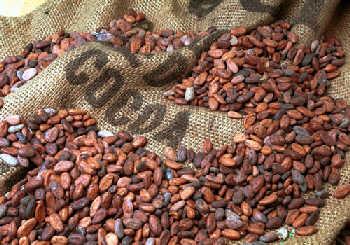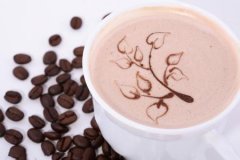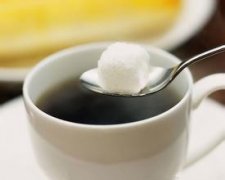Viennese are quite proud of the common sense of coffee culture.

Coffee is something that Viennese enjoy talking about and are quite proud of. The Viennese even compare it with music and waltz, which is called the "three treasures of Vienna", which shows the relationship between Viennese and coffee. Some people say that Vienna is "five steps and one coffee", which may be an exaggeration by the poet, but it is true that there are a large number of Vienna cafes. From the coffee kiosks around the corner for people to drink standing up, to the coffee shops gathered by students near the university, to the magnificent coffee shops next to the theatre and by the Imperial City, there are at least dozens, some of which open at 06:30 in the morning and do not close until 2 a.m. Therefore, it is not too much to say that the air of the "capital of music" is not only flowing with the rhythm of music, but also filled with the fragrance of coffee.
The history of Viennese drinking coffee can be traced back to the 17th century. At that time, there were many cafes in large and small cities in many Islamic countries, and coffee had become an indispensable part of people's lives. But in Europe, people still don't know what it is. In 1683, Turkey attacked Vienna for the second time, when the Austrian Emperor Augustus II signed a military alliance with King Augustus II of Poland. The fleeing Turkish army discarded large quantities of weapons, ammunition and hundreds of large pockets of mysterious brown beans on the battlefield around the walls of Vienna, and the victorious Viennese did not know what to do with them. As it happens, a Polish spy lurking in the Turkish army, Kohzki, once tasted a thick black drink made from this roasted bean in Constantinople. The Turks called it "Kahve", which is now coffee. As a reward, the Polish received all the coffee seized on the battlefield and opened the first coffee shop in the history of Vienna. Today, there are still many cafes that claim to be the first coffee shop opened by Poles to attract customers. But in the beginning, coffee shop business is not good, Viennese still prefer to drink tea. Later, the businessman changed the recipe and added milk to his coffee, which worked surprisingly well and became popular in the 1780s. People call it "Melange". To this day, although coffee is varied, it is still the most popular drink in Vienna.
Important Notice :
前街咖啡 FrontStreet Coffee has moved to new addredd:
FrontStreet Coffee Address: 315,Donghua East Road,GuangZhou
Tel:020 38364473
- Prev

Swiss coffee culture Coffee culture basics
In Switzerland, people often meet not in restaurants or high-end hotels, but in small cafes that locals like. It can be said that no coffee in Switzerland, or in Europe as a whole, is as incredible as no wine, so, like Switzerland's famous Swiss watch, Swiss coffee is also impeccable. A cup of Swiss coffee brings you
- Next

New York Coffee, return to "elaborate work"
In the spare afternoon, it is definitely a pleasure to sit in the open-air coffee bar on New York's Fifth Avenue, listen to a piece of light music and taste a cup of frothy cappuccino made by the barista himself. Not long ago, however, it was an extravagant hope, when New Yorkers didn't think it was a great thing to make coffee. Compared with the economy of New York, in the coffee industry it is only
Related
- How did the Salvadoran coffee industry develop in Central America?
- What exactly does the golden cup extraction of coffee mean?
- The Origin of Coffee flower
- [2023 Starbucks World Earth Day] there are more meaningful things besides free Starbucks coffee!
- What kind of coffee is there in Spain? 9 Flavors of Spanish Coffee
- Aromatic African coffee| Kenya's coffee culture and historical production area
- Liberica Coffee Bean knowledge: the characteristics of Liberian Coffee beans of the three original species of Coffee beans
- The origin and formula of Spanish latte introduces the taste characteristics of Bombon coffee in Valencia, Spain.
- How to adjust the solution of over-extracted coffee
- What is the tasting period of coffee beans? What is the period of coffee and beans? How should coffee wake up and raise beans?

